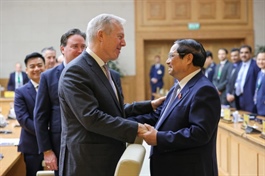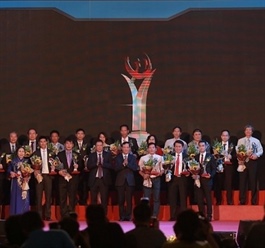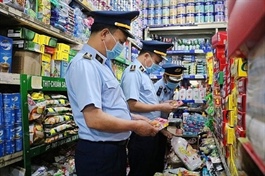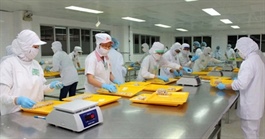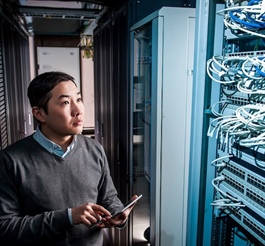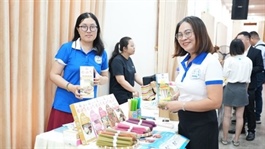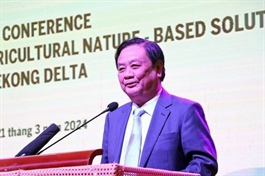Vietnam seeks IAEA assistance in training skilled workforce in nuclear energy industry
Vietnam seeks IAEA assistance in training skilled workforce in nuclear energy industry
Vietnam reiterated its commitment to fulfill its obligations under international treaties and promote the peaceful use of nuclear technology.
Vietnam hopes to continue collaborating with the International Atomic Energy Agency (IAEA), particularly in policy development and workforce training for the nuclear energy sector.
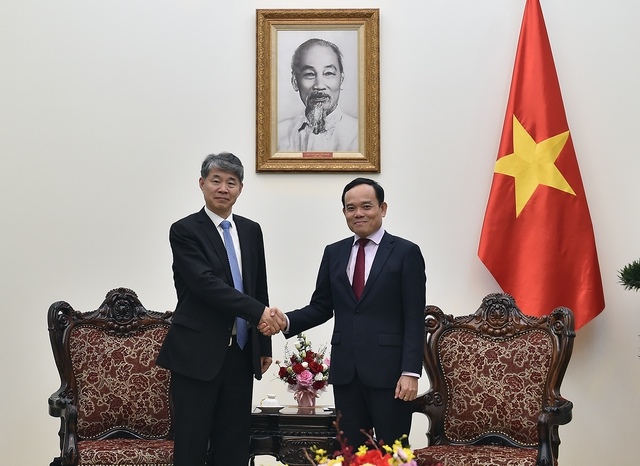
Deputy Prime Minister Tran Luu Quang (r) and IAEA Deputy Director General Hua Liu (l). Photo: Nhat Minh |
Deputy Prime Minister Tran Luu Quang made the remarks during a meeting with IAEA Deputy Director General Hua Liu on March 21.
During the meeting, Quang expressed his gratitude and high appreciation for the IAEA’s support for Vietnam over the years through various bilateral and multilateral cooperation mechanisms. Specifically, from 2018 to 2023, the IAEA directly supported Vietnam with 17 national projects, amounting to nearly EUR3 million ($3.25 million).
Quang also thanked the IAEA and Liu for facilitating the signing of the Framework Cooperation Program between Vietnam and the IAEA for the period 2022-2027 and for assisting Vietnam in amending its Atomic Energy Law. He expressed Vietnam's desire for continued cooperation with the IAEA, especially in the areas of policy development and workforce training for the atomic energy sector.
“Vietnam reaffirmed its commitment to fulfilling obligations and responsibly contributing to international treaties to which Vietnam is a party, particularly those related to safety control, security, combating illicit trafficking, and promoting the peaceful application of nuclear technology,” Quang said, emphasizing the country's support for the IAEA's central role in shaping standards and frameworks for nuclear safety and security, especially concerning emerging nuclear technologies.
As an active and responsible member of the IAEA, Vietnam has previously chaired the IAEA Board of Governors for the 2013-2014 term and has served as a member of the Board of Governors for the last five terms. Vietnam has effectively collaborated with the IAEA in conducting nuclear safeguards activities in Vietnam and participated in the IAEA's Task Force overseeing the management of treated radioactive materials at the Fukushima Daiichi Nuclear Power Plant in Japan and contributed funds to the IAEA Laboratory in Seibersdorf.
Deputy Director General of the IAEA Hua Liu mentioned that during his visit to Vietnam, fruitful meetings were held with the leadership of Vietnam's Ministries of Science and Technology, Agriculture and Rural Development, and Health. The IAEA reaffirmed Vietnam's pioneering role in sub-regional cooperation, particularly in the trilateral cooperation model between Vietnam, Laos, and Cambodia in applying nuclear science and technology in various economic and technical sectors.
Liu noted that the IAEA will continue to work with Vietnam, particularly in the areas of technical assistance, capacity building, infrastructure improvement, and strengthening of safety and security regulations to promote the application of nuclear technology in smart agriculture development.
He also noted that many countries are interested in developing nuclear power as a clean energy source in their electricity structures. At COP28, over 20 countries announced plans to triple their nuclear power output, and there will be a leaders' conference in Brussels, Belgium, to discuss the use of nuclear energy in these countries.
Following the Fukushima incident in 2011, the IAEA has made significant efforts to improve regulations and standards related to nuclear safety and utilization, as well as to promote public support for nuclear power. Consequently, more countries are increasingly accepting nuclear power as a viable option, Liu stated.







